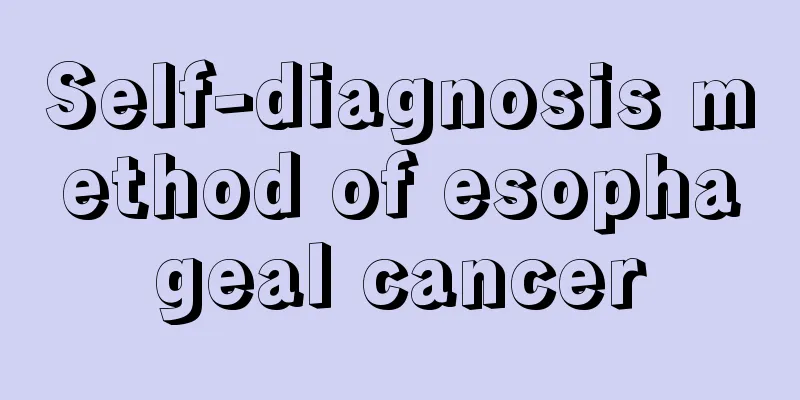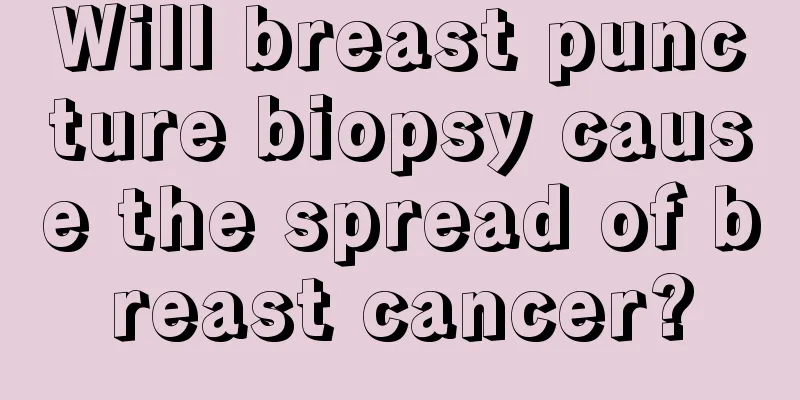There are lymph follicles in the throat

|
Lymph follicle hyperplasia is a relatively common throat disease. Many patients will feel tingling in the throat from time to time due to this disease, and have obvious difficulty swallowing, and even feel uncomfortable when drinking water. This hyperplasia can cause abnormal changes in the patient's body, but what needs to be paid attention to is to choose some appropriate and regular methods for treatment, which will not only recover quickly but also avoid some complications. Disease hazards The harm of lymph follicle hyperplasia to the throat: It connects to the nose and ears above and the trachea and esophagus below, and is known as the "important road". It has important functions such as vocalization, resonance, breathing, swallowing, and defense. The pathological changes caused by lymph follicle hyperplasia not only cause local functional disorders in the throat, but can also affect adjacent organs and even the entire body. The upward spread of lymph follicle hyperplasia can cause rhinitis, nasal polyps, frontal sinusitis, and secretory otitis media; the downward development can cause acute laryngitis, tracheitis, suppurative tonsillitis, bronchitis, and pneumonia; the entry of pathogenic bacteria and their toxins into the blood circulation can cause acute nephritis, sepsis, rheumatism, etc. If the upper respiratory tract infection is caused by a virus, it can also lead to viral myocarditis, which is extremely harmful to the body. When lymph follicle hyperplasia occurs, local resistance decreases. When the climate changes, the heating and humidification functions of the mucosa are reduced, the activity, decomposition and phagocytosis of cilia are insufficient, and bacteria and viruses can easily stay and multiply locally to become chronic lesions. Therefore, these patients are prone to catching colds. The proliferating lymphoid follicles on the posterior pharyngeal wall generally will not disappear on their own. Even if the symptoms of chronic pharyngitis disappear after treatment, the lymphoid follicles may still exist as before. In this case, no further treatment is required. Treatment 1. Eliminate various pathogenic factors, such as treating systemic diseases and sinusitis. Pay attention to nutrition and enhance physical exercise. Avoid irritating food, tobacco and alcohol. Workers working in environments with dust or irritating gases should wear masks. 2. Take different treatment methods according to different types of pharyngitis. For local treatment, you can use compound borax solution, furacillin solution, or light salt water to gargle, or various lozenges can be taken orally. 3. Hypertrophic pharyngitis can be treated with plasma cryoablation. 4. Nebulizer inhalation treatment can be performed. It has certain benefits for symptoms such as dryness and dry cough. |
<<: Are thyroid follicular nodules serious?
>>: Can follicular pharyngitis be cured
Recommend
Which is better, kelp head or kelp
Many people like to eat kelp, especially when eat...
How to judge whether the embryo quality is poor?
Couples who want to get pregnant and have childre...
Sore throat with white lumps inside
Many people often have sore throats, coughs, and ...
Staying up late is harmful to your health. Here are three ways to save your body from "losses"
When it comes to staying up late, many people hav...
How to treat early lung cancer? You must pay attention to these in the early stage of lung cancer
When treating lung cancer, 30% of lung cancer pat...
How to best handle the relationship between mother-in-law and daughter-in-law
How to resolve the relationship between mother-in...
What are the methods to prevent lymphoma
Preventing a disease from occurring is always bet...
Early symptoms check for lung cancer
The vast majority of lung cancer patients have no...
What is spinal herniation?
As the name suggests, spinal herniation means tha...
Is liver disease contagious
Liver disease is a kind of infectious disease. Al...
What to do if you have bloating and indigestion
What should we do if we have bloating and indiges...
What are the causes of severe coughing while lying down?
Coughing is a common disease that is difficult to...
Is 400,000 yuan enough for targeted treatment of lung cancer? Things you need to know about the cost of lung cancer treatment
The cost of targeted treatment for lung cancer is...
Can purpura nephritis be cured? How to achieve good treatment effect?
Purpura nephritis is damage to the kidneys caused...
My eyes are rolling and my head is hurting
Nowadays, many people attach great importance to ...









